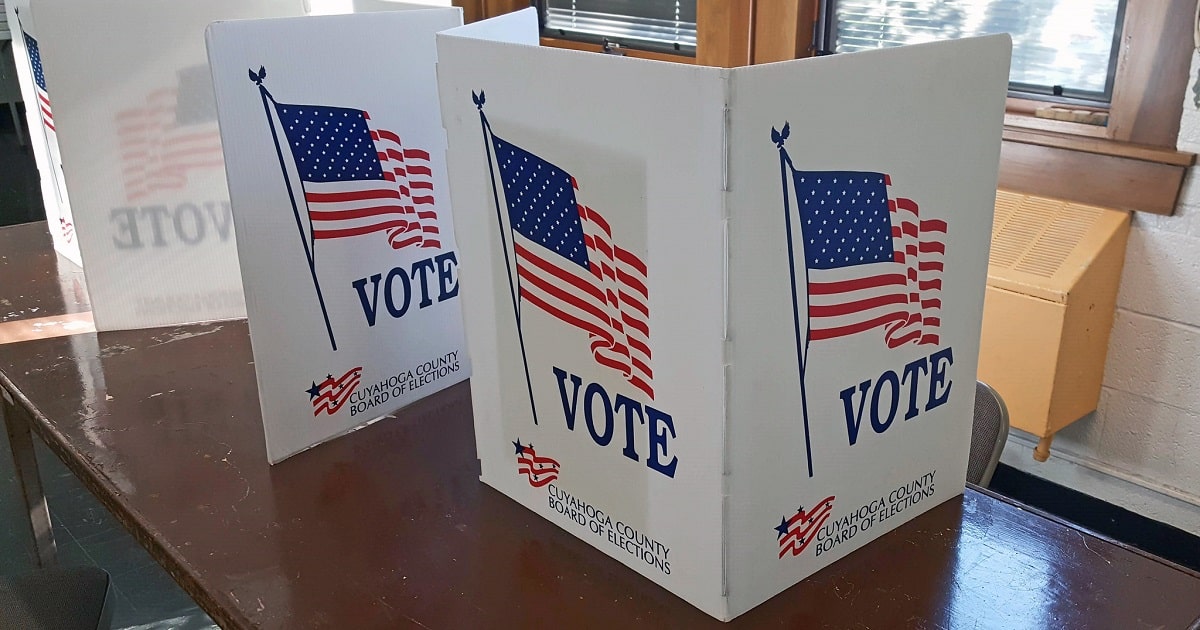




Kansas has just dropped a bombshell that’s got small-town politics buzzing with big-time consequences. Joe Ceballos, the sitting mayor of Coldwater, Kansas, has been slapped with criminal charges for allegedly voting in multiple elections despite not being a U.S. citizen.
The New York Post reported that Kansas officials, led by Secretary of State Scott Schwab and Attorney General Kris Kobach, announced on Wednesday that Ceballos faces six charges in Comanche County for casting ballots in 2022, 2023, and 2024.
Ceballos, a lawful permanent resident from Mexico according to state leaders, has served as Coldwater’s mayor and previously as a city councilman.
Now, he’s accused of perjury and voting without proper qualifications. If convicted, he could face over five years behind bars—a hefty price for allegedly sidestepping the rules.
Let’s be clear: this isn’t just about one man’s actions; it’s about the sanctity of the ballot box. Kansas, like every state, has laws requiring voter rolls to be scrubbed regularly to prevent fraud. Yet, here we are, with a public official allegedly gaming the system under everyone’s nose.
Attorney General Kobach, a staunch advocate for stricter voter ID laws and immigration enforcement, didn’t mince words on the issue. “Noncitizen voting is a real problem. It is not something that happens once in a decade,” Kobach said. Well, if that’s true, it’s a wake-up call for every county clerk and election board to tighten the screws.
But Kobach wasn’t done. “In this case, we allege that Mr. Ceballos violated that trust,” he added. That’s a gut punch to a system already strained by skepticism—when a mayor, of all people, is accused of breaking such a fundamental rule, it erodes public confidence faster than a progressive policy at a town hall.
Kobach, who once served as Kansas Secretary of State, has long pushed for tougher immigration and voting laws, often aligning with President Donald Trump’s hardline stances.
His past efforts, including a failed 2018 federal lawsuit over voter registration documentation, were struck down for overreaching federal election laws. Still, his resolve hasn’t wavered, and this case might just be his latest battleground.
Together with Schwab, both elected Republicans, Kobach has started cross-checking voter rolls with federal immigration records to sniff out violations.
They’re expecting more cases to surface, which could either vindicate their approach or stir up accusations of overzealous policing. Either way, the spotlight’s on how states handle voter integrity without trampling on rights.
Ceballos, for his part, hasn’t responded to requests for comment, leaving the public to wonder about his side of the story. With a court appearance set for December 3, 2024, the legal drama is just beginning. Until then, speculation will likely fill the void, and not all of it will be kind.
Here’s a wrinkle worth noting: Kansas law requires city officials like mayors to be U.S. citizens, though failing to meet that standard isn’t a criminal offense.
Kobach himself pointed out this discrepancy, calling it “worth noting” but not the crux of the charges. Still, it raises questions about how Ceballos held office if his citizenship status was in doubt.
The real meat of the case lies in the voting charges—perjury and unqualified voting aren’t small potatoes. A conviction could set a precedent for how noncitizen voting cases are handled, especially in a state where trust in elections is already a hot-button issue. It’s a tightrope walk between justice and potential overreach.
Meanwhile, Ceballos was on the ballot for re-election recently, though the results aren’t yet certified. That adds another layer of complexity—will Coldwater’s voters stand by him, or will this scandal shift the tide? It’s a question that looms as large as the legal penalties he might face.
Zooming out, this case taps into a broader conservative concern: can we trust the mechanisms that guard our democracy? When voter rolls aren’t airtight, and officials themselves are accused of bending the rules, it fuels arguments for stricter safeguards, not looser ones. The progressive push for “access over security” starts looking like a risky bet.
Yet, there’s a need for balance—ensuring voter integrity shouldn’t mean alienating lawful residents or creating bureaucratic nightmares. Kansas leaders like Kobach and Schwab must prove their methods are fair, not just tough. Otherwise, they risk turning a legitimate issue into a political witch hunt, and nobody wins there.



